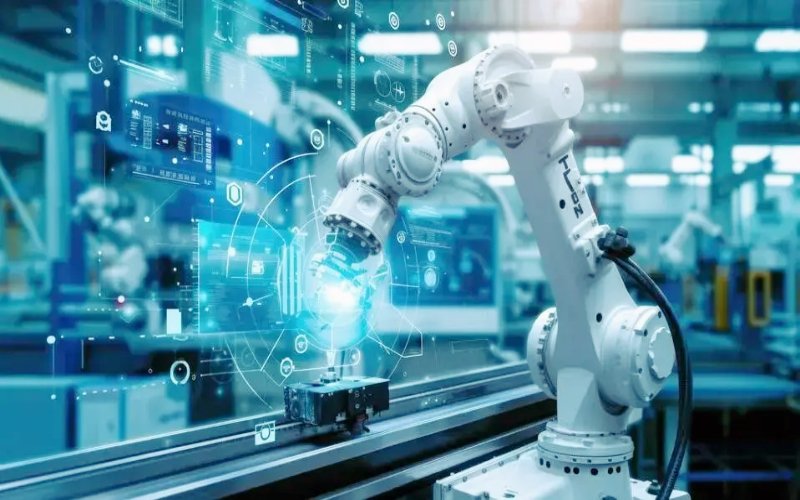Introduction to AI-Powered Logistics
In recent years, artificial intelligence (AI) has transformed various industries, and AI-powered logistics is no exception. As businesses strive to meet rising customer expectations while managing costs, AI-powered logistics solutions have emerged as game-changers. By leveraging AI technologies, companies can enhance operational efficiency, optimize inventory management, and improve decision-making processes. In this article, we will delve into the impact of AI-powered logistics, exploring its benefits, applications, and the future of this dynamic field.
Understanding AI in Logistics
AI-powered logistics encompasses the use of machine learning, data analytics, and automation to streamline supply chain operations. This technology enables organizations to process vast amounts of data in real time, providing valuable insights that drive smarter decisions. From demand forecasting to route optimization, AI can significantly enhance various logistics processes. But how does this technology work, and what makes it so effective?
At its core, AI algorithms analyze historical data, identify patterns, and make predictions about future trends. For example, predictive analytics can help businesses forecast demand more accurately, allowing them to adjust their inventory levels accordingly. This not only reduces waste but also ensures that customers receive their orders on time, enhancing overall satisfaction.
Benefits of AI-Powered Logistics
The benefits of integrating AI into logistics are numerous. Here are some key advantages:
Enhanced Efficiency
AI-powered logistics systems can automate repetitive tasks, freeing up human resources for more strategic activities. For instance, automated sorting and packaging processes can speed up order fulfillment, reducing lead times and increasing overall productivity.
Improved Accuracy
By utilizing AI algorithms, businesses can minimize human errors in inventory management and order processing. Enhanced accuracy leads to fewer returns and better customer experiences, ultimately boosting brand loyalty.
Cost Reduction
AI can significantly lower operational costs by optimizing routes, reducing fuel consumption, and minimizing delays. With the ability to analyze traffic patterns and weather conditions, AI-powered logistics systems can identify the most efficient routes for delivery trucks, saving time and money.
Applications of AI in Logistics
AI-powered logistics applications are diverse and impactful. Let’s explore some of the key areas where this technology is making a difference.
Demand Forecasting
Accurate demand forecasting is crucial for maintaining optimal inventory levels. AI-powered logistics tools can analyze historical sales data, seasonal trends, and external factors like market changes to predict future demand. This capability allows businesses to stock the right amount of products, reducing excess inventory and stockouts.
Route Optimization
Transportation costs are a significant part of logistics expenses. AI-powered logistics algorithms can analyze various factors, including traffic patterns, delivery windows, and vehicle capacity, to determine the most efficient routes for delivery. This optimization not only saves money but also improves delivery times, enhancing customer satisfaction.
Inventory Management
AI can revolutionize inventory management by providing real-time visibility into stock levels and trends. Automated systems can alert managers when inventory is running low, allowing for timely replenishment. Additionally, AI-powered logistics can identify slow-moving items, enabling companies to adjust their purchasing strategies accordingly.
Challenges in Implementing AI in Logistics
While the benefits of AI-powered logistics are clear, implementing these solutions is not without challenges. Here are some obstacles organizations may face:
Data Quality and Integration
For AI systems to function effectively, they require high-quality data. Many logistics companies struggle with data silos and inconsistencies, making it difficult to leverage AI technologies fully. Integrating disparate data sources and ensuring data accuracy is crucial for successful implementation.
Workforce Adaptation
The introduction of AI may create concerns about job displacement among employees. However, it’s essential to view AI as a tool that enhances human capabilities rather than replaces them. Organizations must invest in training and upskilling their workforce to work alongside AI systems effectively.
High Initial Costs
The upfront investment required for AI-powered logistics technology can be daunting for some companies. However, the long-term cost savings and efficiency gains often outweigh the initial expenditures. It’s vital for businesses to evaluate their ROI potential and consider phased implementations to mitigate financial risks.
The Future of AI-Powered Logistics
As technology continues to evolve, the future of AI-powered logistics looks promising. Advancements in machine learning and data analytics will enable even greater efficiencies and capabilities. Here are a few trends to watch for in the coming years:
Increased Automation
The trend toward automation is expected to accelerate, with AI playing a central role. From autonomous vehicles to robotic warehouse systems, AI-powered logistics operations will become more streamlined and efficient. This shift will not only reduce costs but also improve accuracy and speed.
Enhanced Predictive Analytics
AI’s predictive capabilities will become more sophisticated, allowing businesses to anticipate customer needs and market fluctuations with even greater precision. This level of foresight will enable companies to stay ahead of competitors and respond more effectively to changes in demand.
Sustainability Initiatives
With growing concerns about environmental impact, AI-powered logistics will help companies optimize their operations for sustainability. AI can analyze supply chain processes to identify areas for reducing waste and carbon emissions, aligning with corporate social responsibility goals.
Conclusion
AI-powered logistics is reshaping the landscape of supply chain management, offering significant benefits in efficiency, accuracy, and cost reduction. While challenges remain, the ongoing advancements in AI technology present exciting opportunities for the future. By embracing these innovations, logistics companies can enhance their operations, improve customer satisfaction, and thrive in a competitive marketplace.
Also visit on techitl.com.




